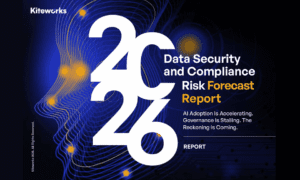In the era of digital transformation, data has become the lifeblood of modern businesses and organizations. The rapid growth of data analytics and the availability of vast amounts of data have given rise to the field of big data analytics. While big data analytics holds immense potential for innovation and progress, it also brings forth a complex web of ethical considerations, particularly concerning privacy. This article delves into the ethics of big data analytics, exploring the delicate balance between innovation and privacy.
Introduction
The Power of Big Data Analytics
Big data analytics refers to the process of examining large and complex data sets to uncover hidden patterns, correlations, and insights. With the advent of advanced technologies like machine learning and artificial intelligence, organizations can extract valuable information from massive data repositories. This information can be harnessed to make data-driven decisions, optimize processes, improve customer experiences, and even predict future trends. In essence, big data analytics has the potential to revolutionize industries across the board, from healthcare to finance and beyond.
The Ethical Dilemma
Amidst the excitement surrounding the possibilities of big data analytics, ethical concerns have arisen. One of the most prominent ethical dilemmas revolves around the issue of privacy. The data used in big data analytics often includes sensitive information about individuals, such as personal preferences, browsing habits, and even health records. The ethical question at the heart of this matter is whether organizations are justified in collecting and analyzing such data, and to what extent.
Balancing Innovation and Privacy
Balancing innovation and privacy in the realm of big data analytics is no easy task. On one hand, data-driven insights have the potential to transform industries and improve people’s lives. For instance, in healthcare, big data analytics can enable early disease detection and personalized treatment plans, leading to better patient outcomes. In finance, it can help identify fraudulent activities and enhance security measures, protecting consumers. However, these innovations often come at the cost of individuals’ privacy.
Here are some key ethical considerations in this debate:
Informed Consent: Obtaining informed consent from individuals before collecting their data is a fundamental ethical principle. Individuals should have the right to know how their data will be used and to what extent it will be shared with third parties. Transparency in data collection practices is essential for building trust.
Data Anonymization: Organizations must take steps to anonymize data to the greatest extent possible. Anonymization involves removing personally identifiable information from datasets, reducing the risk of data breaches and privacy violations.
Data Security: Ensuring robust data security measures is crucial. Breaches and leaks can have severe consequences for individuals whose data is compromised. Organizations should invest in state-of-the-art security protocols to protect sensitive information.
Data Ownership and Control: Individuals should have control over their data. This includes the right to access, correct, or delete their data, as well as the ability to opt out of data collection altogether. Empowering individuals with control over their data is an ethical imperative.
Fair Use: Organizations should use data for legitimate purposes that benefit society as a whole, rather than exploiting it for unethical or harmful ends. Ethical guidelines and regulations must be in place to ensure fair and responsible data usage.
Bias and Discrimination: Big data analytics algorithms can inadvertently perpetuate biases and discrimination present in the data they analyze. Organizations must actively work to identify and mitigate these biases to ensure fairness and equity.
Regulatory Frameworks
To address these ethical concerns, governments and regulatory bodies around the world have begun implementing frameworks and legislation. The General Data Protection Regulation (GDPR) in the European Union and the California Consumer Privacy Act (CCPA) in the United States are notable examples. These regulations aim to protect individuals’ privacy rights and hold organizations accountable for their data practices.
Conclusion
The ethics of big data analytics revolve around striking a balance between innovation and privacy. Organizations should harness big data analytics with respect for privacy and ethics, prioritizing transparency, informed consent, data security, and fairness. Regulatory frameworks are crucial for accountability and ensuring the responsible use of data. By navigating this ethical landscape, we can unlock big data’s full potential while upholding privacy and ethics.



































